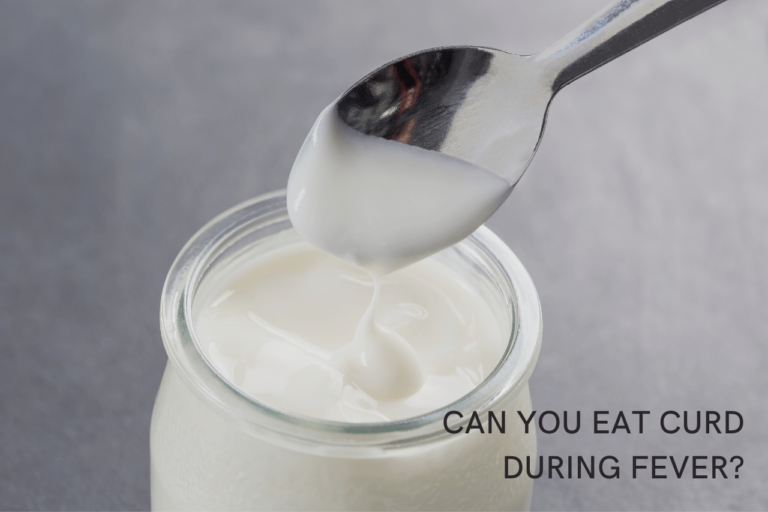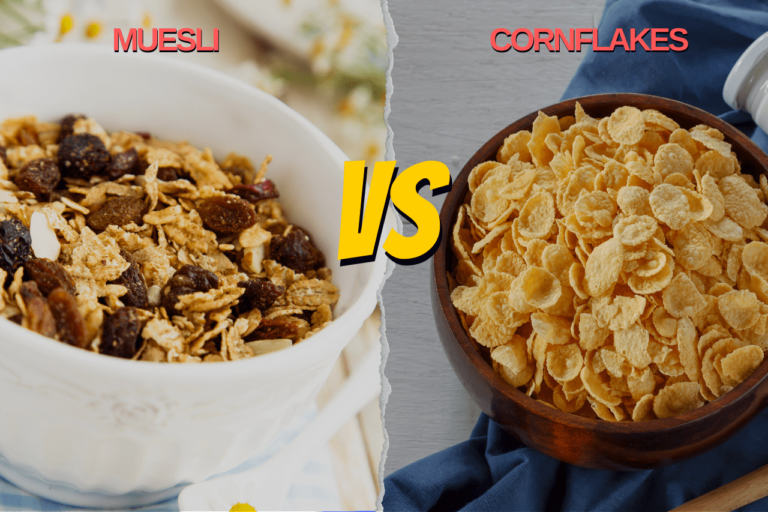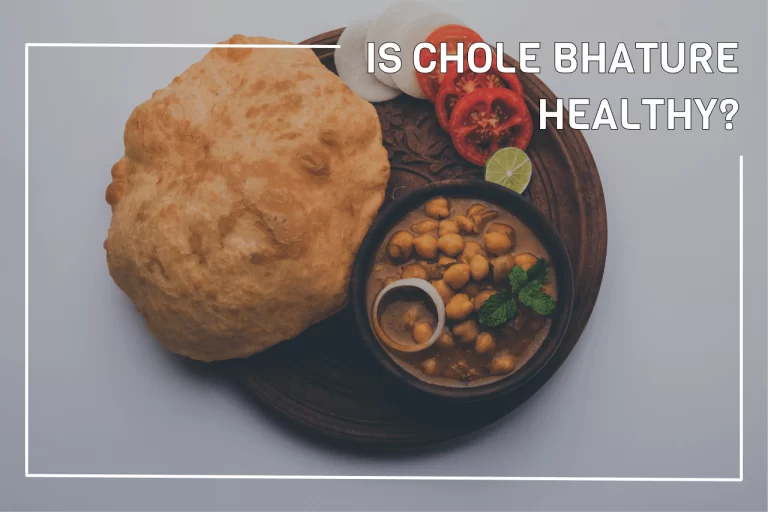Have you been struggling to get enough protein in your diet?
I understand that with busy lifestyles, busy schedules, and limited time, it can be challenging to fit in all of the nutritious foods required for a healthy body.
However, there are several ways to boost your daily protein intake, one of which is to include dry fruits in your diet.
We all know that dry fruits are a great source of protein and other nutrients for the body, but not all dry fruits are equally rich in protein.
That’s why, I did some research and came up with a list of the best protein-rich dry fruits for you.
Also read: 10 Best Calcium Rich Dry Fruits For Strong And Healthy Bones
Why should you consume protein-rich dry fruits?
Dry fruits are fruits that are sun-dried and eaten without any preparation. We can find various types of dry fruits in the market, such as Almond, Raisins, Pistachios, Cashew nuts, Walnuts, Pine Nuts, and many more. They are loaded with energy and nutrients that enhance our health. Also, they provide a great flavor to the food.
Following are some of the benefits of eating protein-rich dry fruits:
- Improved muscle contraction and movement support
- It makes you feel fuller for longer, allowing you to eat fewer calories and lose weight faster.
- Help to repair and strengthen muscle tissue after a workout.
- Improve your bone health.
- Enough protein level in your diet will boost your metabolism, allowing you to burn more calories per day — even while at rest — than you would on a lower-protein diet.
- It will speed up the healing of your wound by reducing inflammation and generating new tissue at the injury site.
10 Protein-rich dry fruits for your diet
Peanuts
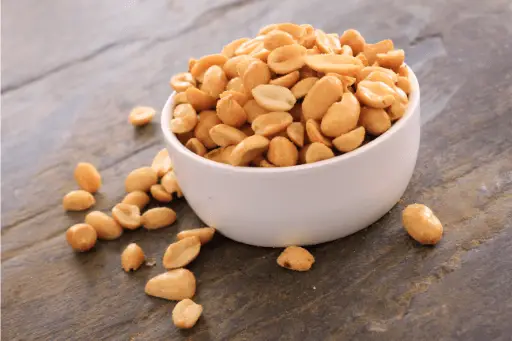
Protein: 26 g per 100 g peanuts
Peanuts might not be the first thing that comes to mind when you hear the word “protein.” In fact, most people consider them as a tasty snack, a little something extra to enjoy. But in reality, peanuts have the highest amount of protein of all dry fruits in the market.
Eating 1 ounce or a handful of peanuts a day provides about 12 to 15% of the daily protein requirement. Peanuts are also high in healthy fats, antioxidants, and essential nutrients, all of which help keep your heart healthy, reduce inflammation, and lower your cancer risk.
Almonds
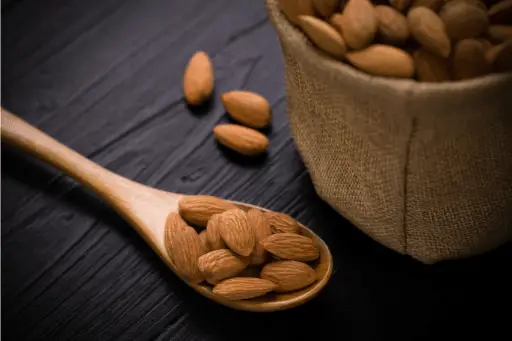
Protein: 21 g per 100 g almonds
Almonds are one of the most popular protein sources, which is why they’re often referred to as a “superfood” in the health and fitness world.
A recent study found that adding one serving a day of almonds to a diet with a moderate amount of protein can boost the amount of protein consumed by an individual.
One serving of almonds (about 23 almonds or 1 ounce) will give you 6 grams of protein. That’s almost the same amount of protein as a large egg (50 grams).
Moreover, studies have shown that nuts like almonds are also good for heart health because they contain nutrients that help lower bad cholesterol levels. As a result, people at risk of heart disease should include almonds in their diet on a daily basis.
Pistachios
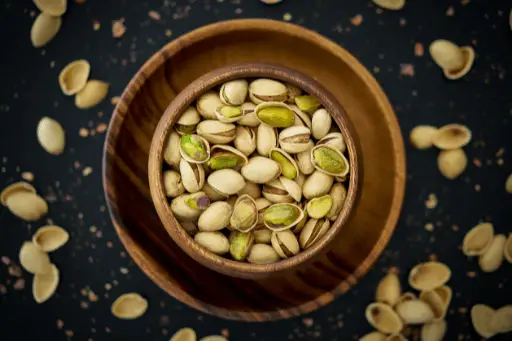
Protein: 20 g in per 100 g pistachios
Pistachios are not only great-looking and delicious nut but also an excellent source of protein. A one-ounce serving of pistachios contains 6 grams of protein. That’s about 10% to 13% of the daily protein requirement. Pistachios are also high in fiber, which is beneficial because it prevents constipation, lower blood pressure, and makes you feel full.
Furthermore, pistachios are high in potassium and iron, which help keep your heart healthy and increase hemoglobin production.
Cashews
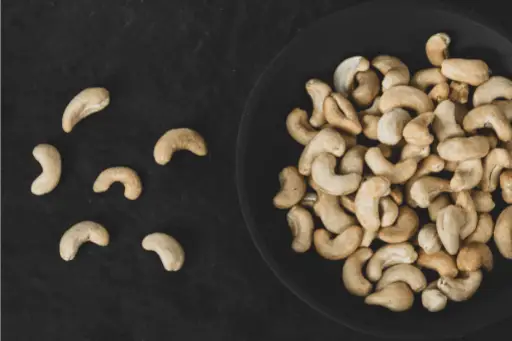
Protein: 18 g in per 100 g cashews
The cashew nut is the seed of the cashew apple, which grows on the cashew tree. It is widely popular for its nutritious seeds and sweet-tasting fruit. These are very popular among people and can be consumed in various ways from eating whole, drinking the milk, and even adding to sweets.
Cashews are a good source of protein, containing 5 grams per ounce, or about 8 to 10% of the daily protein requirement. In addition to building muscles and bones, they are great for improving your heart health and preventing diabetes.
Hazelnuts
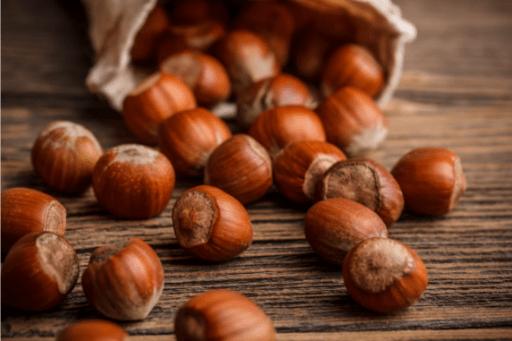
Protein: 15 g in per 100 g hazelnuts
Most of us are aware that almonds, cashews, and peanuts are good protein sources, and it is essential to include them in your diet.
However, did you know that hazelnuts are also a good source of protein?
Hazelnuts, also known as filberts, contain 4.24 grams of protein in 1 ounce of serving or approximately 21 nuts. This amount is equivalent to more than 7% of the daily value for protein, qualifying hazelnuts as a good source of protein.
Also read: Hazelnut vs Chestnut: Which Is The Most Nutritious Nut?
Moreover, hazelnut protein is considered a high-quality protein as it supplies a high percentage of essential amino acids. They’re also high in monounsaturated fatty acids, vitamin E, magnesium, fiber, iron, potassium, and vitamin B-6, all heart-healthy nutrients.
Walnuts
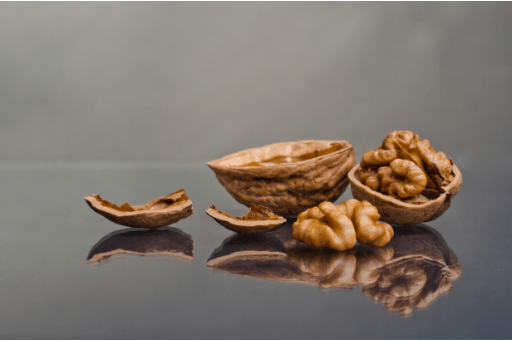
Protein: 15 g in per 100 g walnuts
Wondering whether walnuts are a good source of protein?
Well, walnuts provide 4.2 grams of protein in 1 ounce of serving, which is about 7% of the daily value. The vital thing to note is that walnuts have excellent protein quality.
Walnuts are also high in alpha-linolenic acid, an omega-3 fatty acid found in plants. This fatty acid lowers blood cholesterol and improves heart health. It also aids in brain development during pregnancy and increases milk production after delivery.
Furthermore, a study has shown that walnut consumption has been linked to lower mortality risk and increased life expectancy.
That means! If you want to live longer, add almonds to your diet.
Pine nuts
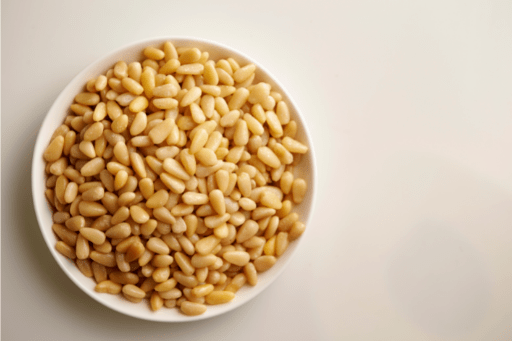
Protein: 14 g in per 100 g pine nuts
Pine nuts are not only a delicious cooking ingredient, but they are also a good source of protein. An ounce of pine nuts contains 3.9 grams of protein, about 6 to 8% of the daily protein requirement. Pine nuts also have a number of other nutrients that are beneficial to your heart’s health and may help reduce your risk of cardiovascular disease.
You can use pine nuts in various recipes, as they add a little extra flavour and crunch. They can be used in numerous dishes, including salads, pesto, pizza toppings, and even Chinese dumplings.
Brazil nuts
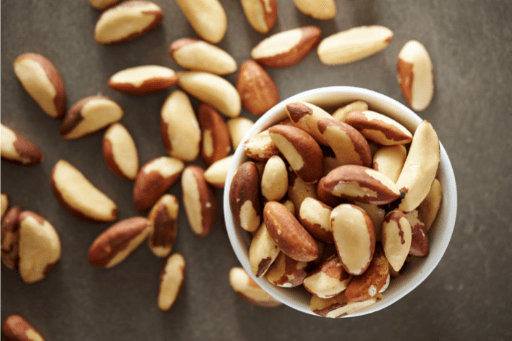
Protein: 14 g in per 100 g brazil nuts
Brazil nuts are extremely important for your health. In fact, they’re one of the best sources of selenium on the planet. Selenium is an antioxidant that supports immune system health and thyroid function. It also plays an essential role in cancer prevention and helps to protect against heart disease and stroke.
In addition to selenium, brazil nuts are also a good source of protein. A one-ounce serving contains 4.1 grams of protein or about 7 to 9% of the daily protein requirement.
A study also found that eating a single serving of Brazil nuts can significantly lower cholesterol levels in the body.
Makhana
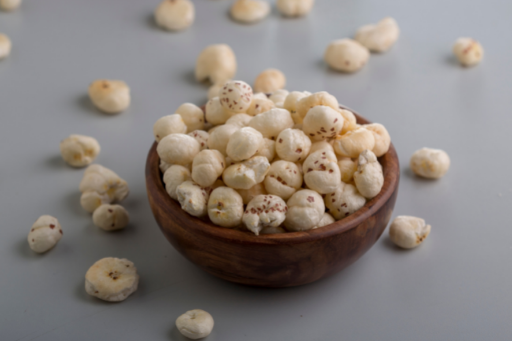
Protein: 9.7 g in per 100 g makhana
Makhana, or foxnuts, is a unique dry fruit whose popularity has skyrocketed in recent years. These are white seeds with a light, fluffy texture and subtle nutty taste.
They are a good source of protein, making them an ideal choice for anyone looking to up their protein intake. A single or one-ounce serving of makhana provides you with about 2.9 grams of protein, which is roughly about 5% of the daily value.
It also contains healthful polyunsaturated fats, which help lower cholesterol and keep your heart healthy.
Also read: The Complete Guide to Makhana Nutrition, Side effects and Benefits
Pecan nuts
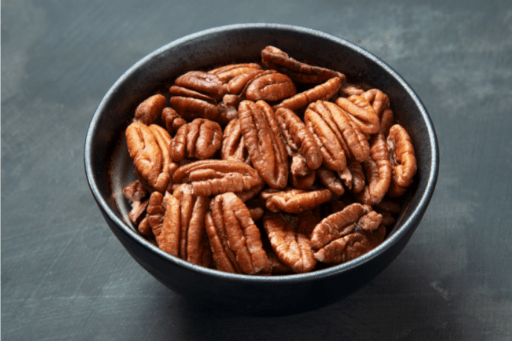
Protein: 9 g in per 100 gm pecan nuts
Pecan nuts are one of the most valuable nut species in North America. With being a delicious snack, they are also a good source of protein. A one-ounce serving has 2.6 grams of protein, about 5% of the daily recommended protein intake.
Furthermore, they are a good source of zinc, with nearly 10% of the Daily Value for zinc, which is an essential nutrient in testosterone production in both men and women.
Pecan nuts are commonly eaten raw and can be used in a variety of dishes.
Final words
While there are more than 50 different types of dry fruits, the ones listed above are the best in terms of protein. Whether you are vegetarian or not, including these protein-rich dry fruits in your diet will really help you meet your daily protein requirements.
So, the next time you visit your local grocery store or market, don’t forget to include some of these dry fruits in your shopping cart.
If you found this informative, spread it with your loved ones.
Other related articles that may be of additional help to you:

